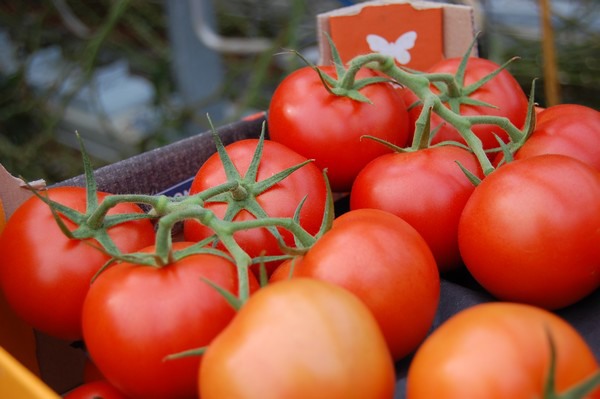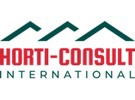I n the Netherlands, the first unlit tomato growers are starting production, and lit greenhouses are full, too. It would all seem quite normal, if not for the fact that many December plantings have been postponed and both lit and unlit growers have had to adjust their entire crop planning due to the energy crisis.
n the Netherlands, the first unlit tomato growers are starting production, and lit greenhouses are full, too. It would all seem quite normal, if not for the fact that many December plantings have been postponed and both lit and unlit growers have had to adjust their entire crop planning due to the energy crisis.
"Cultivation is slower, greenhouses are colder and growers are faced with situations they haven't been confronted with in a long time," says Marco van Noord of Horti-Consult International. "This has been a difficult year. The global pandemic and the Tomato brown rugose fruit virus (ToBRFV) haven't been easy on growers, and now, on top of everything, an energy crisis. They're not getting a chance to catch their breath, even though that is extremely important. Growers need stability to start a new growing season positively."
Concerns
Marco is concerned about the low number of young people entering the Dutch and Belgian horticultural sector in recent years. The bleak prospects growers are now faced with could easily put off the younger generation who are faced with choosing their future careers. "Many growers are looking for successors or someone to take over their business, but with all the present uncertainty, those choices are hard, not only because of the current crop, but also because politics do not seem to be aware of the problems the industry faces. It's not easy financially either."
Cultivation choices
The first December planting began in mid-December. There are fewer than usual, as fellow consultant, Gilbert Heijens, predicted six weeks ago. "Growers on the right side of the tracks, energy-wise, can grow well now. Some growers have made good energy deals with their customers, and they, too, started their cultivation," he says.
Growers on the wrong side of the energy track have postponed their cultivation. "There are even those who have dumped young plants. They've opted for one short, painful loss of income at the beginning of the energy crisis," adds Marco knows. A wise choice, in his opinion. "If you knew beforehand that your crop wouldn't be profitable this winter, you simply shouldn't be farming now."

Variety choices
Marco visits tomato growers in Belgium and the Netherlands, and he also has a few clients abroad, some of which are in Southern Germany and Austria. He has noticed something on these visits. "The German and Austrian growers are achieving higher yields. That's very noticeable. What's more, the tomatoes reach stores quicker there, whereas I think that sometimes takes far too long with Dutch products. That obviously doesn't benefit their quality, and if you want to get higher prices, the quality must be good. There are all kinds of links in the chain that aren't helping, causing products to sometimes end up on the shelves days later."
The cultivation consultant has noticed that, in recent years, varieties' shelf life is becoming important again. "I think that's in response to how the product is handled in the chain. However, you should opt for flavor and freshness. You shouldn't want to store products for that long at all," he says.
Short days
Growers have little or no say about how tomatoes are treated in the chain, but they always try to get the highest possible quality, even in these unusual times. That is not easy, Marco saw recently. "Growers are literally putting less energy into their cultivation; you can't go too cold. Growers have short days and are growing sparingly. If you're not careful, however, things backfire. Dropping below 18°C in lit cultivation isn't good. Sporadic fungal problems are already developing."
Marco understands why growers are making these severe choices. He thinks it is 'logical' that growers have decided to cultivate more economically, but that is at the expense of quality, he says. "That can't be helped. Otherwise, it would mean we'd all been doing it wrong for the past decade."
Big differences
The past few years, it has become increasingly difficult to compare companies, also regarding cultivation strategies. "That means we, as advisers, have to work harder, which makes it more fun. We're all being challenged, and at the same time, we try to increase quality as best we can. Now, it's about condition-based fine-tuning, about customization."
The increasing demand for customization does not mean knowledge should no longer be shared. On the contrary, says Marco adamantly. "Our team of seven crop advisors exchanges a lot of knowledge. We now talk a lot about how low you can go in terms of temperature. What is the minimum? By sharing this information, we can better guide our clients."
Rest
Marco has touched upon the low prices Dutch and Belgian growers are getting in his opinion for their products at the moment. There, too, the question is how low it can go. He is certain, however, that volumes will drop in January. "So far, it's not too bad, but in January, I expect significantly lower production."
Marco sincerely wishes growers would be paid better for their products. He mentions another recent visit to Austria. "Our team visited a vineyard. The production of these products is quite cheap, but they sell them for much higher prices. The grower we visited does a lot of marketing on top of good quality, and that's working for him. In the Netherlands, growers are taking these steps too, although I feel that it's less so in recent years than before." Perhaps Christmas could offer a moment of reflection? "I certainly hope growers will have a little rest so they can then enjoy other things as well. Then, next year, they can all work together again to produce beautiful, local products," Marco concludes.
For more information:
Marco van Noord
Horti-Consult International BV
Email: [email protected]
Website: www.horti-consult.nl
